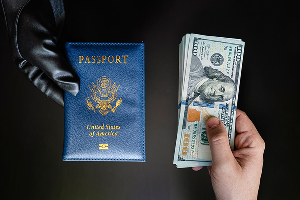Forgery in the First Degree — C.G.S. § 53a-138

“Forgery in the first degree” sounds like a movie charge, but it shows up in real Connecticut cases—especially when the document is government-issued or tied to securities or public records. These cases can feel overwhelming because the stakes are higher than simple document mix-ups. The good news: there are defenses, leverage points, and practical strategies to protect your record.
The Law — C.G.S. § 53a-138A person is guilty of forgery in the first degree when, with intent to defraud, deceive, or injure, they falsely make, complete, or alter a written instrument (or possess/issue one knowing it’s forged) and the instrument is, purports to be, or is designed to be (1) money, stamps, securities, or similar instruments issued by government; (2) an issue of stock, bonds, or interests representing ownership/claims in an organization; or (3) a public record. Classification: Class C felony.
Penalties for Forgery in the First DegreeIf convicted, you face:
- 1 to 10 years in prison
- A fine up to $10,000
- Up to 3 years of probation
- A felony record that can impact employment, licensing, and immigration
Creating or altering a certificate that claims to be a Connecticut (or other government) bond and presenting it to a bank to secure a loan. Government “securities” fall squarely within first-degree forgery.
2) Altered Stock Certificate (Chargeable Under § 53a-138)Changing the number of shares or owner name on a corporate stock certificate and using it to pledge collateral. Instruments representing an interest in an organization are classic first-degree targets.
3) Tampered Public Record (Chargeable Under § 53a-138)Altering a filed town record (e.g., recorded lien release) and presenting it in a property transaction. Public records are specifically covered by first-degree forgery.
4) Edited Gym Membership Card (Not Chargeable Under § 53a-138)Photoshopping a health-club card to extend expiration. This is not money, securities, stock, or a public record; while it may fit lesser forgery or criminal simulation, it usually does not meet first-degree.
Related Offenses (Similar Crimes With Statutes)- Forgery in the Second Degree— C.G.S. § 53a-139
- Forgery in the Third Degree— C.G.S. § 53a-140
- Criminal Simulation— C.G.S. § 53a-141
- Forgery of Symbols of Value— C.G.S. § 53a-142
- Larceny (by False Pretenses / Theft of Services; degree by value)— C.G.S. § 53a-119 (definition) and §§ 53a-122– 53a-125b (degrees)
- Identity Theft— C.G.S. §§ 53a-129a – 53a-129d (in overlapping scenarios)
- No fraudulent intent— Good-faith belief the instrument was genuine; no intent to defraud or injure.
- Instrument not covered— The document isn’t money, government securities, stock/bonds, or a public record.
- Authorization/genuineness— The instrument was valid, authorized, or reasonably believed to be valid.
- Insufficient proof/chain of custody— State can’t prove you made/altered/issued it or knew it was forged; authenticity proof is weak.
- Suppression issues— Evidence obtained via unlawful search/seizure can be excluded.
AR is discretionary and more limited in felony cases, but it can be available for eligible defendants. When granted and successfully completed, the case is dismissed and erased. Because § 53a-138 is a Class C felony, you should weigh AR strategically against the strength of the evidence and the potential to negotiate a reduction to second- or third-degree forgery.
FAQs About C.G.S. § 53a-1381. What’s the Difference Between First-, Second-, and Third-Degree Forgery?First degree targets money, government securities, stock/bonds, and public records (most serious). Second degree covers important instruments like deeds, wills, prescriptions, and commercial papers. Third degree is the general catch-all misdemeanor.
2. Do I Have to Be the One Who Created the Fake Document to Be Charged?No. Possessing or issuing a forged instrument knowing it’s forged, with intent to defraud, can support the charge.
3. Is Counterfeit Money Always First-Degree Forgery?Counterfeit money fits the first-degree category under state law, though federal authorities can also get involved. State prosecutors often file first-degree forgery alongside larceny if value was obtained.
4. What Counts as a “Public Record” For First Degree?Filed government records—like land records, official certificates, or entries maintained by a public office—commonly qualify. The State must prove the document is, or purports to be, a public record.
5. Can This Be Reduced to a Lesser Forgery Charge?Often, yes. Defense focus on the type of instrument and intent proof can lead to reductions to § 53a-139 or § 53a-140, or resolution via AR.
6. Will I Go to Jail for a First Offense?Jail is possible but not automatic. Outcomes depend on prior record, loss amount, victim impact, restitution, and the strength of the State’s evidence.
7. How Important Is Restitution?Very. Early restitution and remediation can improve negotiations, support AR eligibility, or help secure a reduction.
8. What Evidence Do Police Use in Forgery Cases?Device forensics, document exams, bank/store records, surveillance, witness statements, and metadata. Preserve your own emails, messages, drafts, and receipts.
9. Will This Affect Jobs, Professional Licenses, or Immigration?Yes—first-degree forgery is a felony and a fraud-type offense, which can raise serious collateral consequences. Early action can mitigate these risks.
10. If My Case Is Dismissed or I Complete AR, Is It Erased?Dismissed cases are typically erased, but private databases can lag. Keep certified proof of dismissal/erasure for background checks.
Conclusion & Call to ActionA first-degree forgery charge does not have to define your future. We focus on challenging the type of instrument, intent, and proof—while pursuing reductions, restitution-based resolutions, or AR where appropriate.
📞 Call (203) 357-5555 or reach out through my contact page for a confidential case review. Let’s protect your record and move you forward.
 Allan F. Friedman Criminal Lawyer Home
Allan F. Friedman Criminal Lawyer Home











